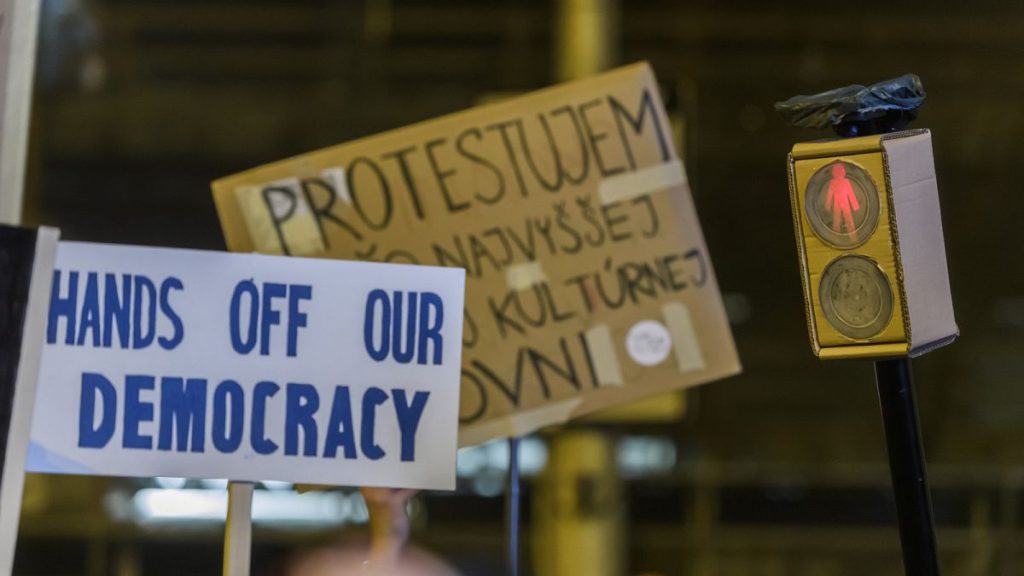The Slovak opposition is urging Brussels to continue to hold the government in Bratislava accountable as thousands of protesters have taken to the streets to denounce controversial government decisions they view as eroding the rule of law and democratic freedoms. Recently, three events have sparked frustration with Prime Minister Robert Fico’s coalition government, which includes the ultranationalist Slovak National Party (SNS). These events include the dismissal of cultural institution directors, the release of a former special prosecutor from prison, and Fico’s announcement to disband the National Crime Agency (NAKA). Protesters believe these actions are attacks on Slovak democracy.
Organizers of the protests in Bratislava are calling attention to what they see as a frontal attack on Slovak institutions, the rule of law, justice, and freedom of art and culture by the current government. MEP Lucia Yar, from the opposition liberal party Progressive Slovakia, stated that people need to stand up against these actions. The party is pushing for two extraordinary parliamentary sessions to hold a potential no-confidence vote for ministers Šimkovičová and Susko. Although a no-confidence vote may not succeed due to the government’s majority, there is growing discontent within government ranks regarding the recent events.
European lawmakers from Progressive Slovakia believe that these protests are a response to months of efforts to undermine the rule of law in Slovakia. They argue that Prime Minister Fico’s actions go against the principles of the European Union, specifically the separation of powers. They urge Brussels to remain vigilant and take note of the continuous infractions on the rule of law in Slovakia. Fico has faced mass protests in the past, notably in 2018 when he was forced to step down following the murder of an investigative journalist. Since returning to power in 2021, concerns over democratic backsliding have risen.
Fico, a left-wing nationalist, has implemented controversial judicial reforms and changes to the public broadcaster, RTVS, which have sparked condemnation and protests. The EU has refrained from freezing funds to Slovakia in response to backsliding, citing a focus on dialogue. However, experts believe that the Commission may need to take action soon in response to blatant attacks on state institutions in Slovakia. The European Commission has been cautious in its criticism of the Slovak government but may need to address the recent actions that challenge fundamental EU principles. Observers expect the Commission to intervene in response to the ongoing erosion of democratic principles in Slovakia.


